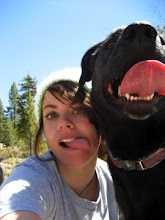www.oregonlive.com
Coyote makes Mt. Hood
Torsten Kjellstrand/The OregonianFor Kathryn Jones Harrison, it started with Coyote and Grizzly.
"During Kathryn Jones Harrison's 84 years, she's seen the Grand Ronde tribe terminated, then restored. She's raised 10 children, served on the tribal council on the reservation east of Lincoln City for 22 years and today helps hold the memory and oral traditions -- of the merged Umpqua, Kalapuya, Chasta, Rogue River and Molalla tribes -- by telling stories.
"I'm really proud to be here to tell you a Coyote story about Mount Hood and something about my people, the Molallas. This story is called Coyote and Grizzly."
Coyote was busy putting together earth and rock and making a big mountain, which later became Mount Hood. So Grizzly comes along and he says, "What are you doing and where will you be going?"
Coyote says, "Oh, I'll be going yonder."
Grizzly says, "What will you do there?"
Coyote says, "I will be making the world."
Grizzly says, "So who told you to do that? We should fight over that."
Coyote says, "No, we should swallow things."
Grizzly keeps saying, "No, we should fight."
But Coyote sticks to his guns and says, "Well then, we might as well swallow all these stones fast and get busy."
Grizzly says, "OK, right away. Let's get to it and swallow stones. How many are we going to swallow?"
Coyote says, "Let's start with five. Go ahead, you go first."
So Grizzly looks at the hot stones and swallows five, one after another. He looks at Coyote and says, "Now it's your turn."
Coyote being the trickster, instead of swallowing hot stones, he swallows five strawberries. He doesn't have any trouble so he tells Grizzly, "Now you need to swallow all those stones."
And Grizzly swallows those hot stones, lots of burning hot stones. He gets burned out of his whole life and he dies.
And so Coyote thinks, "What will I do now? What's best for me? I'll go. I'll never come back here and the world will go on."
But he takes Grizzly, skins and cuts his body into quite a few pieces, and throws the pieces everywhere. He takes the heart and throws it over to Molalla country and says, "These people here, they will all be good hunters. They will not be worthless low-class people. They will be always on the hunt and that will be their way."
"That is the end of the Coyote and Grizzly story.
"And I have two sons who were always good hunters for my family, so I guess it's true.""









